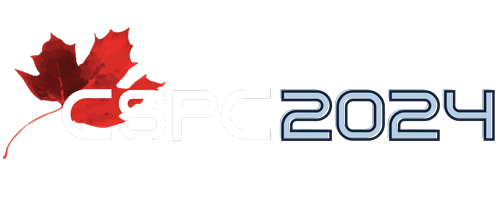Most Canadians believe that in the future, scientific advancement will play a major role in solving challenges and pressing needs.[1] Research shows us that Canadians value innovation and risk taking, yet they do not see themselves as innovative or risk takers.[2]
These are valuable insights to consider in the context of science education for youth. Knowing that self-led and experiential learning are powerful tools, how can we use them to improve science literacy and creativity? This is a key question at Ingenium, as we look ahead to the future of program and exhibition development at our three museums — the Canada Agriculture and Food Museum, the Canada Aviation and Space Museum, and the Canada Science and Technology Museum.
A review of recent International and Canadian policy recommendations on science, technology, engineering, and math (STEM) education recommended three approaches:
(1) refocusing education systems from reproducing set bodies of knowledge and towards developing critical thinking, problem-solving, and other related competencies,
(2) positioning STEM and related skills as something “for all” rather than “for the gifted,” and
(3) requiring collaboration with a variety of stakeholders (schools, community organizations, private sector, and especially parents) to demonstrate to students the relevance of STEM education and to support them in the pursuit of STEM-related studies and careers.[3]
A new program at the Canada Science and Technology Museum is doing all of these things — and getting youth excited about science, technology, engineering, arts, and math (STEAM).
Launched in fall 2018, the STEAM Effect Project provides a cost-free opportunity for youth (ages 12 to 17) who do not usually participate in after-school programs, and who don’t seem themselves represented in the fields of STEAM.
“In our first session, the participants made propeller cars, they made bridges out of K’Nex and tested to see which would hold the most weight, they planted seeds and watched them grow, and they went to the National Gallery to see Anthropocene, the art exhibition about human impact on the environment,” says Olivia Béchard, coordinator of the STEAM Effect Project.
“One of the big focuses of the program is to engage kids in science, technology, engineering, arts, and math in a way that’s fun and makes them want to continue pursuing these avenues.”
Many of the participants in the inaugural session of the STEAM Effect Project were new to Canada, and sometimes Ingenium staff had to find ways to overcome the language barrier.
“There were four kids who didn’t speak English well,” says Béchard. “But one of the nice things is that some of the kids who spoke English a little bit better would translate to Arabic for the others, so that they’d understand; we were all working together to learn.”
A second session provided more hands-on, interactive activities relating to STEAM topics.
“Throughout the program, participants built their STEAM skills,” says Béchard. “We worked specifically in the areas of soldering, coding, 3D printing, laser cutting, using hand tools and power tools, and in prototyping.”
Thirteen-year-old Hala Chikh Omar was one of the participants in the STEAM Effect Project. She says the program had a positive impact on her outlook towards science.
“Now science is more fun for me; I like it more and it’s more challenging,” says Chikh Omar. “When I was small, I didn’t come to the museum, but now I really like it and I want to do science!”
A recent study indicated that visiting a science centre was the only type of experience that consistently inspired an interest in science, out of a list of science-learning activities. [4] Science centres and museums offer an out-of-school, free-choice learning experience located in hands-on, interactive settings.
Learn more at the panel, “Empowering youth through self-led and experiential learning” at the Canadian Science Policy Conference, scheduled for 1 p.m. on Friday, November 15, 2019.
[1] Ontario Science Centre Canadian Science Attitudes Research
[2] Rideau Hall Foundation released Canada’s Culture of Innovation Index
[3] Spotlight on Science Learning – The Evolution of STEM Education: A Review of Recent International and Canadian Policy Recommendations
[4] Multi-Institutional Science Center Effects Study (MISCES)


